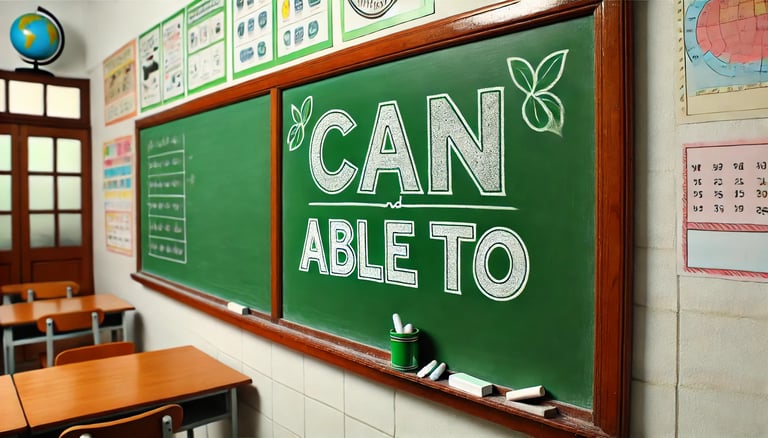

What’s the difference between "会" (huì) and "能" (néng) In Chinese?
In Chinese, both "会" (huì) and "能" (néng) can be translated to "can" or "be able to" in English, but they have different uses and connotations. Here's a detailed explanation with examples:
会 (huì)
1. Expressing Learned Skills or Knowledge:
- "会" is used to indicate that someone has learned a skill or has knowledge about how to do something. It implies a capability that comes from learning or practice.
- Example: 我会说中文。(Wǒ huì shuō zhōngwén.) — I can speak Chinese (because I have learned it).
2. Indicating Future Possibility:
- "会" can also be used to indicate a future possibility or likelihood.
- Example: 明天会下雨。(Míngtiān huì xiàyǔ.) — It will (likely) rain tomorrow.
3. Expressing Willingness:
- In some contexts, "会" can imply willingness to do something.
- Example: 我会帮你。(Wǒ huì bāng nǐ.) — I will help you.
能 (néng)
1. Expressing Ability or Capability:
- "能" is used to express physical or inherent ability to do something. It is often used to indicate that someone has the physical capability or circumstances to do something.
- Example: 我能游泳。(Wǒ néng yóuyǒng.) — I can swim (I have the physical ability to swim).
2. Permission:
- "能" can also be used to ask for or give permission.
- Example: 我能用你的笔吗?(Wǒ néng yòng nǐ de bǐ ma?) — Can I use your pen?
3. Expressing Possibility or Feasibility:
- "能" is used to express whether something is possible or feasible, often in terms of external conditions.
- Example: 今天太忙了,我不能去。(Jīntiān tài máng le, wǒ bù néng qù.) — Today is too busy; I can't go.
Comparison with Examples
1. 会 vs. 能 in the Context of Skills and Abilities:
- 我会弹钢琴。(Wǒ huì tán gāngqín.) — I can play the piano (I have learned how to play).
- 我能弹钢琴。(Wǒ néng tán gāngqín.) — I can play the piano (I have the ability to play, e.g., my hands are not injured).
2. 会 vs. 能 in Terms of Possibility and Permission:
- 明天我会去看你。(Míngtiān wǒ huì qù kàn nǐ.) — I will go to see you tomorrow (indicating future intention).
- 明天我能去看你。(Míngtiān wǒ néng qù kàn nǐ.) — I can go to see you tomorrow (I am available or have permission to go).
Summary
- 会 (huì): Focuses on learned skills, knowledge, or likelihood of future events.
- 能 (néng): Focuses on inherent ability, physical capability, permission, or feasibility.
Would you like more examples or a deeper explanation of any particular usage?
